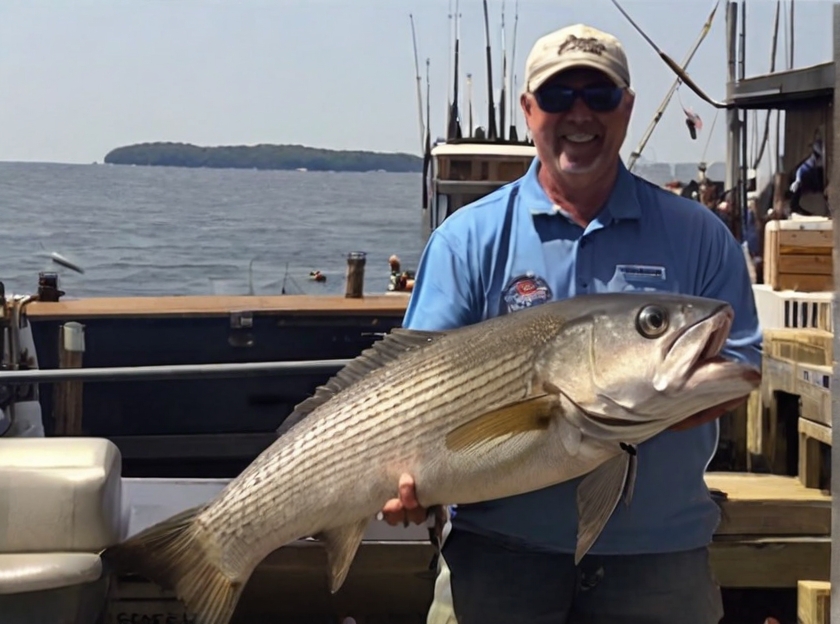Last updated on March 26th, 2024 at 07:38 am
Last updated on March 26th, 2024
Fishing has been a vital part of human civilization for thousands of years. Whether for subsistence, trade, or sport, fishing has played a significant role in shaping the culture and traditions of communities around the world.
The rich tradition of fishing is not only a means of sustenance but also a way of life that has been passed down from generation to generation. In this article, we will explore the diverse and fascinating world of fishing, from the ancient fishing practices of indigenous communities to the modern-day commercial fishing industry.
Indigenous Fishing Practices:
Indigenous communities around the world have relied on fishing as a means of survival for centuries. From the Inuit of Canada to the Maori of New Zealand, fishing has been an integral part of their cultural and spiritual practices. Indigenous people have developed unique and sustainable fishing techniques that have been passed down from generation to generation.
For example, the Haida people of the Pacific Northwest use a traditional technique called “herring spawn-on-kelp” to catch herring during their spawning season. The herring attach their eggs to the kelp, and the Haida people use a rake to collect them.
Traditional Fishing Techniques:
Many communities around the world still use traditional fishing techniques that have been passed down for generations. In Japan, fishermen use a method called “ukai” to catch fish in rivers. This involves using a trained cormorant bird to dive into the water and catch fish, which the fisherman then retrieves.
In Africa, fishermen use nets made from grass or tree bark to catch fish in rivers and lakes. These traditional techniques not only provide sustenance but also serve as a source of cultural identity and pride.
Fishing as a Way of Life:
For many communities, fishing is not just a means of survival but a way of life. In coastal communities around the world, fishing is a central part of their culture and traditions. Fishermen often work in family-owned businesses, passing down their knowledge and skills to their children.
In places like Newfoundland, Canada, fishing has played a significant role in shaping the culture and identity of the community. The annual cod fishery was a major event that brought the community together and created a sense of pride and belonging.
The Commercial Fishing Industry:
While many communities still rely on traditional fishing techniques, the commercial fishing industry has become a significant global enterprise. The industry provides jobs for millions of people around the world and supplies seafood to consumers in every corner of the globe.
However, the industry has also faced significant challenges, including overfishing, habitat destruction, and bycatch. In recent years, there has been a growing movement towards sustainable fishing practices that aim to protect the health of the oceans and the livelihoods of fishing communities.
Fishing and Culture:
Fishing has played a significant role in shaping the culture and traditions of communities around the world. From the seafood-centric cuisine of coastal regions to the art and literature inspired by the sea, fishing has left an indelible mark on human culture.
In some communities, fishing has even been elevated to the status of a religious or spiritual practice. For example, in Thailand, the annual Loi Krathong festival celebrates the river goddess Mae Khongkha, and fishermen release krathongs (floating baskets) into the water as an offering.
Sustainable Fishing Practices:
Sustainable fishing practices have become increasingly important in recent years as overfishing and habitat destruction have threatened the health of the world’s oceans. Sustainable fishing aims to preserve fish populations, protect the habitats of marine life, and promote responsible fishing practices that minimize waste and bycatch. Here are some examples of sustainable fishing practices:
Selective fishing gear: Using fishing gear that targets specific species and avoids catching unwanted species, known as bycatch, can significantly reduce the impact of fishing on the ecosystem.
Quotas and regulations: Governments can establish catch limits and fishing quotas to ensure that fish populations are not overfished. They can also enforce regulations to ensure that fishing practices are sustainable and minimize damage to the environment.
Marine conservation areas: Establishing marine conservation areas, where fishing is either limited or prohibited, can help protect marine habitats and promote the recovery of fish populations.
Seasonal fishing: Seasonal fishing is another sustainable practice that helps protect fish populations by only allowing fishing during specific times of the year when fish are most abundant and reproductive cycles are not disturbed.
Aquaculture: Aquaculture, or fish farming, is a sustainable alternative to wild-caught fish. It can reduce pressure on wild fish populations and provide a reliable source of fish for consumers.
By adopting sustainable fishing practices, we can protect our oceans and ensure that fishing remains a viable and important industry for generations to come. The rich tradition of fishing around the world reminds us of the importance of preserving our natural resources and the cultural heritage that they provide.
Conclusion:
Fishing is a rich and diverse tradition that has been an integral part of human civilization for thousands of years. From indigenous fishing practices to the modern-day commercial fishing industry, fishing has shaped the culture and traditions of communities around the world.
While fishing has provided sustenance and livelihoods for generations, it has also faced significant challenges, including overfishing, habitat destruction, and pollution.
By promoting sustainable fishing practices, we can ensure that fishing continues to be a vital part of our culture and traditions for generations to come. The rich tradition of fishing around the world reminds us of the importance of preserving our natural resources and the cultural heritage that they provide.






I resonate with your insights.